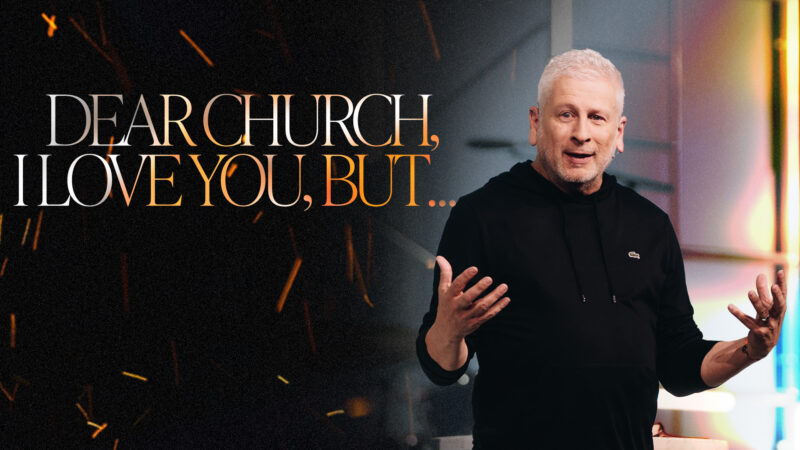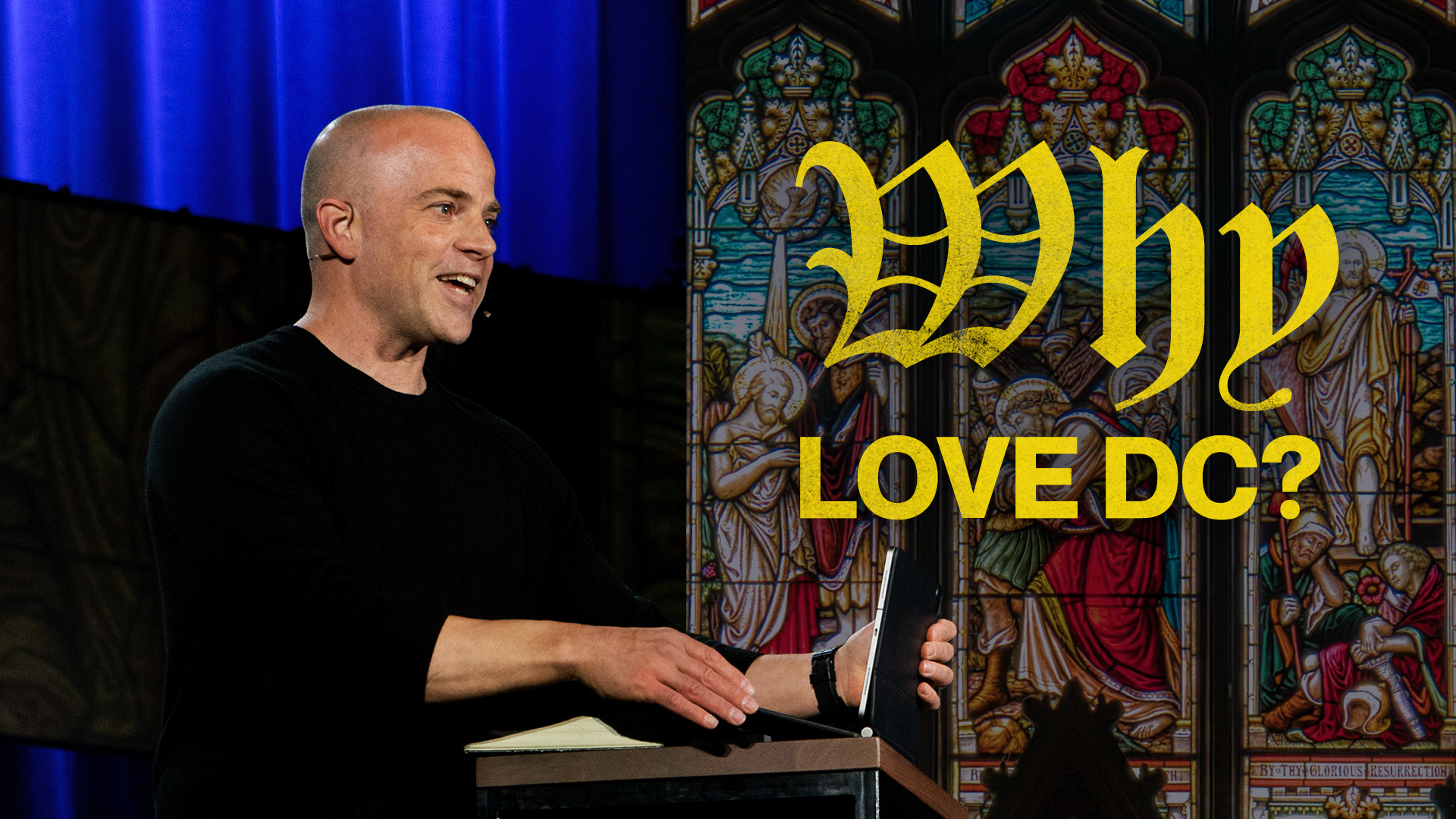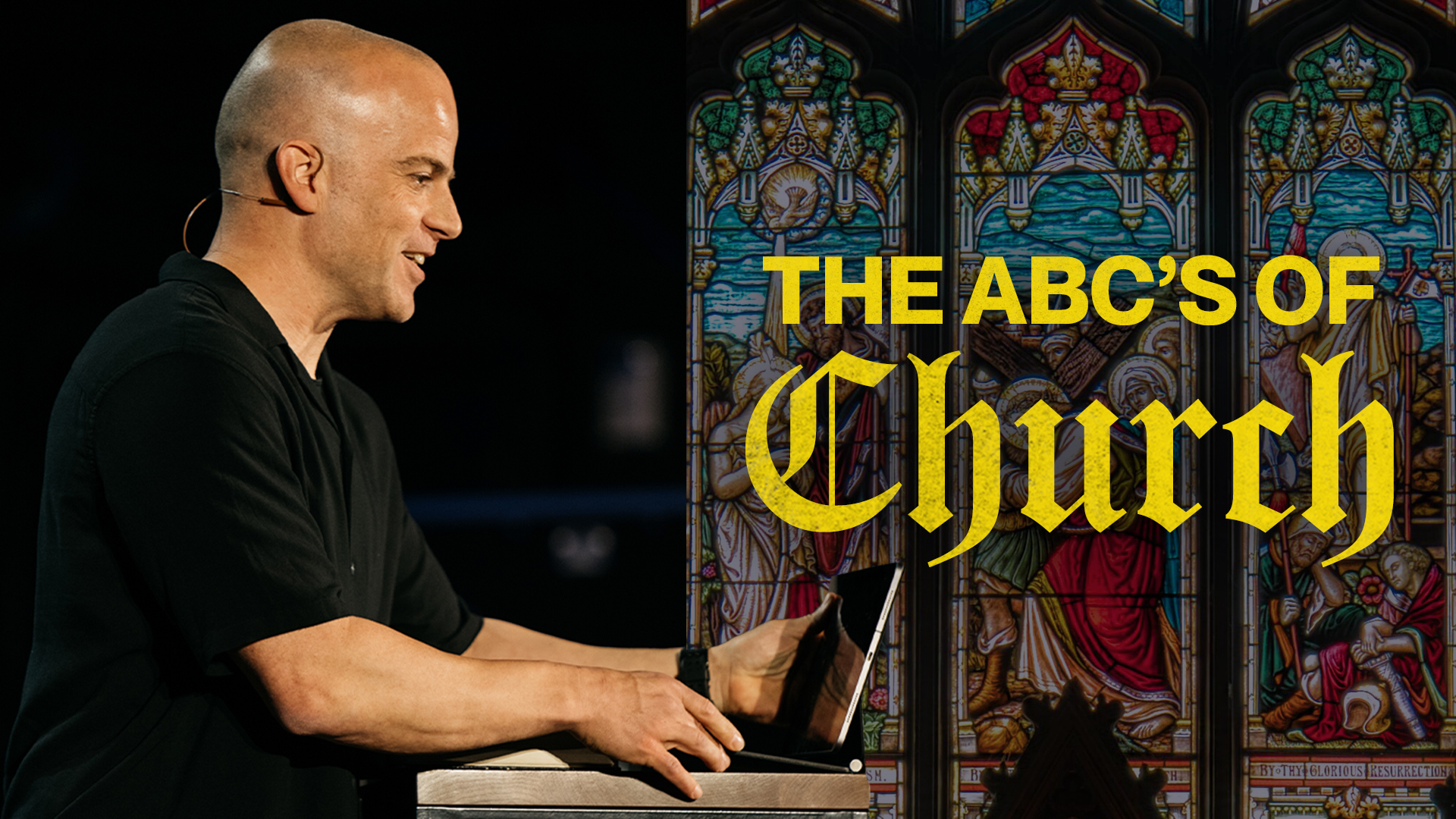Hey, there, I am excited about the potential that lies before us today because we’re about to enter one of the most profound, certainly the most personal letters ever written by the great Apostle Paul. The letter of second Timothy. And let me tell you why it matters to you and to me.
There was a poem written in 1915 in the middle of World War One by Lieutenant Colonel John McCrae, and he wrote it after a friend of his died in battle in Belgium and was buried in Flanders field, and he wrote it as a perspective from a dead soldier speaking to the soldiers who would live on. And the poem ends with the line, “Take up our quarrel with the foe. To you with failing hands, we throw the torch. Be it yours to hold it high. And if you break faith, we shall not rest. Though poppies grow in Flanders field. To you with failing hand, we throw the torch. It’d be yours to hold it high.” That’s the perspective. It’s your turn to lead and that’s what’s happening in the book of Second Timothy.
These are the last recorded words we have from the great Apostle Paul. And they went to a church. They were to his young protege, Timothy. Paul sees the end of his life in view, and as he sees his life coming to an end, he takes the torch of the faith and tosses it to young Timothy. And what we’re going to see in these pages ahead is we’re going to see how to live and how to lead in a troubled day. As Paul releases Timothy to carry the words of God into a troubled world, he’s going to give him. What are the perspectives you should have about the world around you? What are your priorities as you live in this world, God’s made? And what are the practices that help us best succeed? So this is a wonderful book written to the young leader in a difficult day.
Here’s how you move for the glory of God and for our good. Now let me tell you how we’re going to do it. We’re going to do 20 segments of about five to seven minutes. My hope is that this could be maybe a devotional time for you. And my hope is that you would spend about equal amount of time meditating and pondering these things after we talk about them here and maybe even more time discussing them with a friend as you journey together. I remember for me when I heard Tommy Nelson teach this. It changed my life, so I want to teach it to you. So, Lord willing, it’ll change yours and maybe your community as well.
But I don’t want to do much more exposition. I want us to discover what this letter is about as we move through it together in 20 rounds. And 2 Timothy, so let’s do round one, and we’re just going to look at the intro, the first two verses. So take a deep breath, if you will, in through the nose out through the mouth. Lower your heart rate, clear your mind, and let’s read the word of God together.
“Paul, an apostle of Christ Jesus by the will of God, according to the promise of life that is in Christ Jesus, To Timothy, my beloved child: Grace, mercy and peace from God the Father and Christ Jesus our Lord.” (2 Timothy 1:1)
Paul’s writing here and he calls himself an apostle, and that word originally meant a ship that carried cargo from one place to another. And then it became the idea of an emissary from a kingdom. I’m a king and I’m someone carrying a message from one king to a different kingdom. And that’s how Paul saw himself. I am the emissary of a message from a king to your kingdom.
Who is his king? He says, I’m the apostle of Christ Jesus. And you may say, Wait a minute, why is Christ listed first? I thought that was his last name. Well, no, it’s his title. Christ is the Greek translation of the Hebrew word Messiah, the anointed one. Paul says, I’m the official envoy of the King Jesus. How did Paul get to be that? He says, by the will of God. The will. That’s the intention, the desire, the pleasure of God. Paul says, I am what I am and I have a purpose in this world, not because I made it up, but because it was given to me by God. And he says this purpose is to give you a message that’s according to the promise of life that’s in Christ Jesus.
I think it was Billy Graham that said, “this is the gospel in miniature.” That what you have in verse one here is the shortest way to explain the good news of Jesus. That’s a promise. It’s not something you earn. It’s something that someone promises to give to you. What’s the promise of the gospel? Life. The assumption there being you don’t have it. You don’t have a spiritual life now we feel that sense of lack, and your life doesn’t endure.
And so here God is promising to offer you life, a spiritual life now and a life that races on into eternity. It’s a promise to give you a life in that life is in Christ Jesus. It’s housed in a person. That is our gospel, that our king Jesus has come to give us life. Not as something we earn, but a promise of a gift in him.
So that Paul introduces himself. And then he writes to Timothy, my beloved child. Now, Timothy is not his biological son. You can read about in Acts:16, Timothy was Paul’s mentee, his protege that traveled with him, and yet it became more than just an employee. Paul looks at him and says, possessive pronoun your my beloved. I love you child. This has a deep relationship to it. Which then begs the question, then why did Paul give his full title if he knows the guy? They traveled together? We’ll cover that round two.
But he ends with what is typically a wish from Paul. He normally opens letters with grace and peace from God, our father in Christ Jesus, our Lord. Grace, the kindness of God, you don’t deserve and peace that gives you peace with God externally and peace within. That’s the gift of God in Jesus. That’s normally how he starts a letter. But then Paul tips his cards with the addition of a word about what this letter is about. He adds the word for Timothy: Mercy. And in doing that, he shows us where this is going.
Mercy is help provided for the one who needs it. And what we’re going to discover here is Timothy is in a difficult moment and in a difficult day, he needs mercy, and that mercy comes in a letter from Paul.
So I want to end with this. Just as you ponder these things, maybe ask God what stands out to you and what it means to you. But let me close with this. All Paul had to do was to say Paul to Timothy, what’s up? That’s all he had to do. This is the intro and yet notice whose name takes center stage three times. Christ Jesus, Christ Jesus, Christ Jesus. As Paul contemplates his identity and his life, he is surrounded by his king Jesus. And so let me challenge you as we close. Who is Jesus to you? Does he surround your life? Does he dictate your direction in this world? Who is he to you? How would you identify yourself? And how does Jesus fit into that?
Think about it. Pray about it, and we’ll see you next time.




